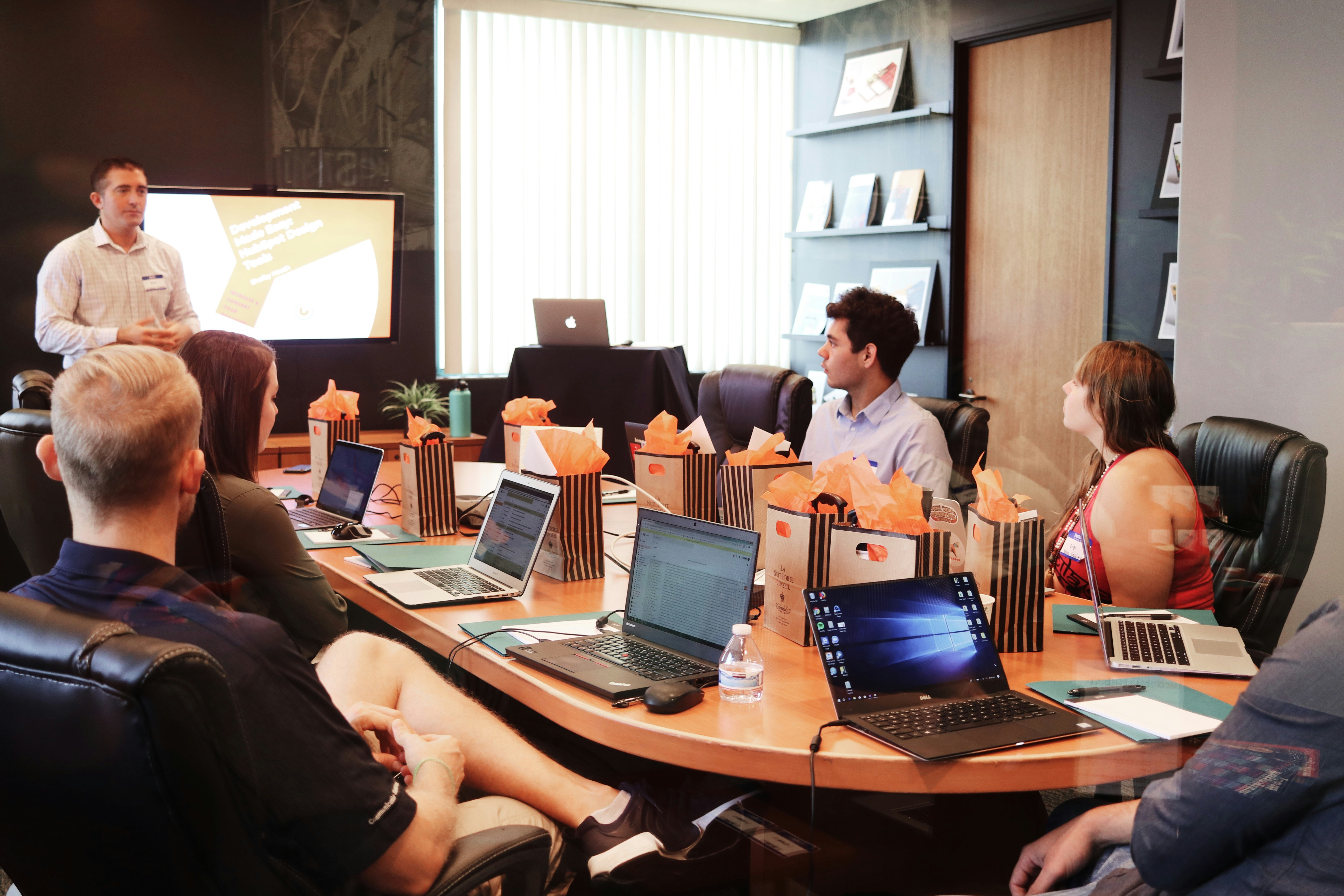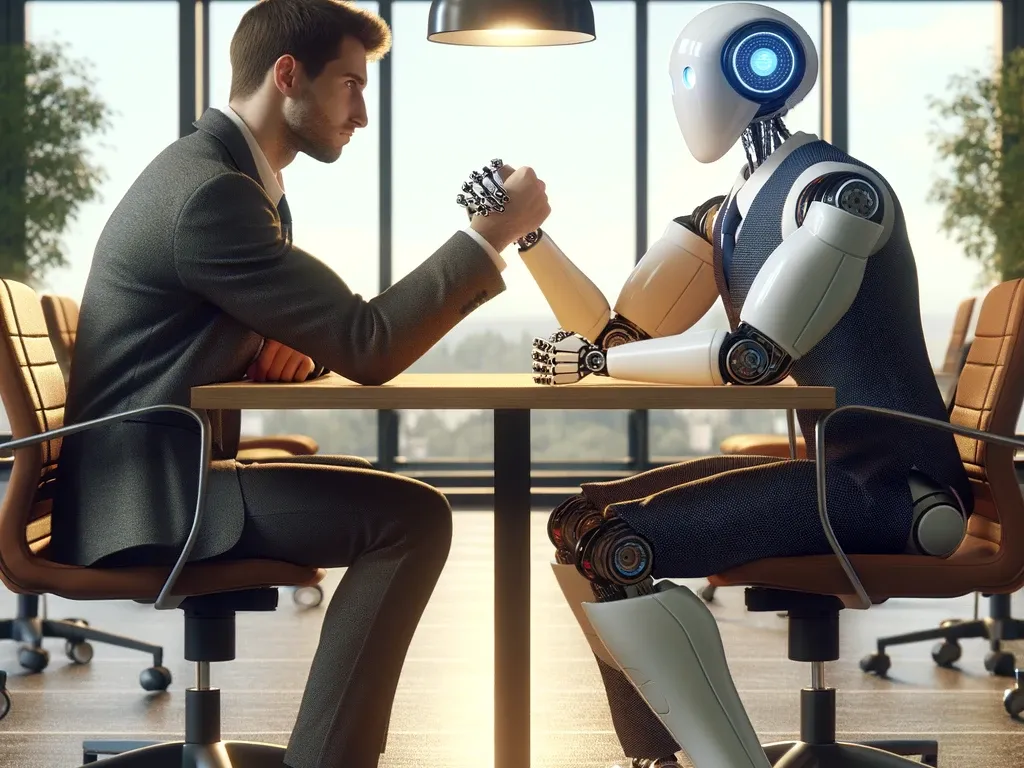Meet the NexGen Solutions Team
Customization. At NexGen, we don't believe in one-size-fits-all. We understand every business is unique, and so are its needs. That's why our AI models are custom-trained and fine tuned for each business, ensuring they perfectly align with your specific requirements and workflows. Our AI doesn't just fit into your operations, it transforms them.

Glenn Dietzel
Co-Founder & Business Strategist

Jurica Dujmović
Co-Founder & AI Archictect

Bruce Fleck, PhD
Co-Founder & Marketing Strategist

Alecander Williams
Data Scientis
“Turning today's science fiction into tomorrow's reality.”
NexGen is reshaping the AI landscape with innovative models and a unique approach designed to deliver maximum value and accessibility to our clients.
The Big Idea
The Truth is That Business Scaling is Possible
Without Lots of Employees or Capital
Scaling requires a business operating system that balances products, people, and processes.

Products
Lorem ipsum dolor sit amet, conseca dipiscing elit.

People
Lorem ipsum dolor sit amet, conseca dipiscing elit.

Processes
Lorem ipsum dolor sit amet, conseca dipiscing elit.
The Answer: An AI-Powered Business Operating System for Scaling!
Tomorrow's Reality
Our Moonshot
Every great leap begins with a bold vision. At NexGen, our moonshot is to transform businesses globally, enabling them to have their own customized AI employees. We aim to redefine the future of work, turning today's science fiction into tomorrow's reality.


Customized AI Employees
AI Solutions for Every Task
Meet your new workforce: AI Copywriters, Content Creators, Artists, Data Analysts, Customer Support Specialists and more.
Each specialized AI model is designed on your dataset and optimized to perform given tasks at lightning speed. With NexGen, you gain access to AI that can write, talk, create, analyze and advise, revolutionizing your business operations and setting the stage for unprecedented growth.
Customized AI Employees
Unmatched Edge
What sets NexGen apart? Our AI models are not one-size-fits-all. We custom-train each model to adapt to your unique business needs, making us the game-changer your business has been waiting for.

The Solution
The AI-Powered Business Operating System for Scaling (AI-BOSS)

Enjoy these benefits:
Automates tedious and repetitive tasks
Provides data-driven insights to inform decisions
Optimizes business processes for efficiency
Enables faster innovation and product development
Allows scaling without lots of employees
Increases marketing reach and conversions
Lowers operational costs and increases profits
Improves customer experience and satisfaction
Gains competitive advantage with AI capabilities
Frees up time to focus on business growth
Programs and Services
Our Programs and Applications
Prompting Principles for Professionals
Create Your ChatBot Workshop
Buyers Blueprint and Creative Brief Workshop
AI-Powered Business Operating System for Scaling Program


Harness the power of AI now.
Build an AI chatbot worth over $3500.
Learn the basics of AI and how it can revolutionize your customer service.
Understand the principles of chatbot design and functionality.
Get hands-on experience building your own AI-powered customer service chatbot.
Discover how to integrate your chatbot into your existing customer service framework.
Learn how to analyze and interpret chatbot data to continually improve your customer service.
Understand how an AI chatbot can help reduce operational costs and increase efficiency.
Gain the confidence and skills to continue exploring and implementing AI solutions in your business.
Hear From Our Clients

Darby Rollins
Founder, The AI Author

Lorem ipsum dolor sit amet, consectetur adipiscing elit. Quisque nisi nunc, tincidunt non nibh non, ullamcorper facilisis lectus. Sed accumsan metus viverra turpis faucibus, id elementum

Opher Brayer
CSO, Impro.ai

Lorem ipsum dolor sit amet, consectetur adipiscing elit. Quisque nisi nunc, tincidunt non nibh non, ullamcorper facilisis lectus. Sed accumsan metus viverra turpis faucibus, id elementum

Jurica Dujmović
MarketWatch Tech and Crypto Journalist

Lorem ipsum dolor sit amet, consectetur adipiscing elit. Quisque nisi nunc, tincidunt non nibh non, ullamcorper facilisis lectus. Sed accumsan metus viverra turpis faucibus, id elementum

Will AI Take Over Product Management Jobs in 5 Years?
In an article written by Freedom Preetham, he claims that traditional product management jobs will be taken over by AI in 5 years. While I believe that all knowledge worker jobs will dramatically change in the next 5 to 10 years, I don’t believe that jobs that require critical thinking and strategic decision-making like product management jobs will be taken over.
While such predictions capture the imagination, I approach them with a healthy dose of skepticism. My experience over three decades in product management, within technology-driven corporate environments, suggests a more nuanced future.
Artificial intelligence (AI) is undeniably transforming the landscape of work, extending its influence across all domains of knowledge work, not just product management. This article aims to dissect how AI is reshaping the nature of product management, thus setting the stage for a broader discussion on its impact across various knowledge work.
Why is AI Transforming Knowledge Work
The introduction of natural language AI tools and their data analytic capabilities marks an inflection point, not just for product management but for all knowledge work. My expertise lies in synthesizing technological advancements with strategic business and marketing objectives.
While AI can automate, accelerate, amplify, and augment our work, it is not a silver bullet for every challenge. Successful integration of AI into our work processes requires a mindset shift. A shift that requires us to look for ways to use AI in anything we do, but to never rely 100% on what AI produces.
In this light, my skepticism towards the obsolescence of product management roles in the face of AI is grounded in a firm belief in the irreplaceable value of human insight and creativity. AI presents an opportunity to redefine and enhance our roles, not diminish them.
AI's Revolutionary Role in Product Management
The integration of artificial intelligence into product management is not just about automating routine tasks; it's about fundamentally transforming how we approach and execute our work. AI’s capacity to process and analyze vast arrays of data, understand market trends, and predict consumer behaviors is poised to revolutionize product management tasks.
"AI’s capacity to process and analyze vast arrays of data, understand market trends, and predict consumer behaviors is poised to automate up to 80% of what constitutes today’s product management tasks."

This prediction underscores the transformative potential of AI in automating tasks that traditionally required extensive human effort and intuition. AI can free up product managers to focus on more strategic, high-value activities that leverage their unique human insights and creativity.
Four Categories of AI-Assisted Work
AI assists knowledge work at different levels. By recognizing the differentiated roles AI can play, we categorize its impact into four transformative areas:
Automation: This category encompasses tasks that require minimal to no human thinking or oversight, which can be fully automated by AI. Such tasks constitute a relatively small fraction of the work performed by knowledge workers but are essential for efficiency.
Acceleration: AI tools, including generative AI like ChatGPT, expedite knowledge work, enabling tasks to be completed faster than through human effort alone. This acceleration is evident in activities such as drafting memos or conducting data analysis, where AI enhances the speed of operations without compromising quality.
Amplification: Here, AI's capability extends to enhancing the quality and impact of work beyond what individuals could achieve independently. Amplification enables knowledge workers to produce results of higher quality and significance, effectively raising the bar for what constitutes exceptional work.
Augmentation: Augmentation represents a pivotal use of AI, where it is employed to execute tasks beyond the skill level of the knowledge worker. Through AI programmed with established frameworks or processes, knowledge workers can guide and utilize AI to achieve outcomes previously unattainable, marking a significant leap in capability and innovation.
The distinction among these categories underscores AI's versatility in transforming knowledge work. It's not merely about replacing human effort but about enriching it, enabling us to transcend our inherent limitations and embrace a broader spectrum of possibilities.
In the context of product management, this transformation implies a shift towards roles where strategic insight, creative ideation, and complex decision-making are paramount. AI becomes a partner in this journey, automating and accelerating tasks, amplifying our abilities, and augmenting our skills to navigate the challenges and opportunities of the digital age.
Redefinition of Roles in the Age of AI
The transformative capabilities of AI across automation, acceleration, amplification, and augmentation not only redefine how tasks are performed but also highlight the evolving nature of work itself. This evolution is a testament to the shifting landscape where strategic decision-making, innovation, and human insight become paramount.
In product management, the advent of AI is significantly automating tasks related to data analysis, market trend observation, and consumer behavior insights, which traditionally consumed a considerable portion of a product manager's time.
This shift emphasizes the need for roles focused more on strategic oversight, creative ideation, and managing intricate human interactions, aspects of work where AI cannot fully replicate the nuanced understanding and empathy of human professionals.
"When AI automates a significant amount of tasks in all roles, those roles that have significant overlaps and are on the precipice will likely be redistributed."
This redistribution signals a move towards roles that leverage human capabilities—those not easily replicated by AI. It suggests a future where the essence of many jobs evolves, focusing more on the unique value humans bring to the table.
"The residual 20% of the role — involving strategic oversight, creative ideation, and intricate human interactions — becomes more critical than ever."
As AI takes over a substantial part of the workload, it's the uniquely human aspects that come to the forefront. This highlights the importance of human intuition, creativity, and the ability to manage complex interpersonal dynamics—skills that are irreplaceable and will define the future of work.
This redefinition of roles will necessitate a collaborative future where AI and human expertise converge, not just within the realm of product management but across all sectors of knowledge work. It challenges organizations to adapt job descriptions, evolve training programs, and redefine career paths to foster the new synergies between human talent and artificial intelligence.
The Human Element
As AI continues to redefine the scope and execution of work, the human element within the corporate and technological spheres becomes increasingly significant. This shift is not about diminishing the value of human roles but rather about elevating and transforming them in response to AI's expanding capabilities.
"Business leaders will emerge as strategic orchestrators in this AI-driven environment."
This statement encapsulates the evolving role of human leadership in the AI era. Business leaders are positioned to harness AI's analytical and predictive powers to inform strategic decisions, foster innovation, and guide their organizations through the complexities of the digital age.
Their role transcends traditional management, evolving into strategic orchestrators who leverage AI to achieve broader business objectives while maintaining a focus on human values, ethics, and the long-term vision of their organizations.
Furthermore, the assertion that "The impending dominance of AI in product management heralds a future that is not about the obsolescence of the human role but about the evolution and redistribution of responsibilities" speaks volumes about the future of work.
It highlights a transformative phase where the integration of AI into business processes does not lead to the redundancy of human roles but instead prompts a strategic reevaluation and reallocation of these roles. The essence of human contribution—creativity, empathy, strategic insight, and the ability to navigate complex interpersonal dynamics—becomes more vital than ever.
In this future, the human element is characterized by its irreplaceable capacity for creative ideation, ethical judgment, and deep emotional intelligence. These are the aspects of work where AI serves as a complement rather than a substitute.
As AI handles the analytical and routine, humans are free to focus on the strategic, the innovative, and the interpersonal—domains where human insight and experience hold unparalleled value.
Ethical Considerations and Continuous Learning
As artificial intelligence assumes a more prominent role in our professional lives, the imperative for ethical guidelines and human oversight becomes increasingly evident. The integration of AI into various facets of work is not merely a technological evolution but a complex interplay between innovation and morality.
"As AI takes on more responsibilities, ensuring that it is guided by ethical principles and human oversight becomes crucial."
The ethical use of AI is a multifaceted challenge that encompasses issues of privacy, fairness, accountability, and transparency. As AI systems make decisions that can significantly impact individuals and communities, it is imperative that these decisions are made within an ethical framework that respects human rights and values.
This requires a concerted effort from business leaders, technologists, ethicists, and policymakers to establish guidelines that ensure AI's applications are beneficial and do not perpetuate bias or harm.
Moreover, the rapid advancement of AI technologies necessitates a commitment to continuous learning and adaptation among professionals. The landscape of work is evolving at an unprecedented pace, driven by AI's capabilities to transform industries and create new opportunities. This dynamic environment demands a workforce that is agile, skilled, and prepared to leverage AI effectively while navigating its ethical implications.
A Synergistic Future of AI and Humans
When we look back on the explosive growth and general availability of AI, we will see it as one mankind’s biggest technological leaps. It's clear that the future we envision is one marked not by the replacement of human roles by AI but by the transformative collaboration between human intelligence and artificial capabilities.
"The impending dominance of AI in product management heralds a future that is not about the obsolescence of the human role but about the evolution and redistribution of responsibilities."
This perspective is not only insightful but also reflects a shared optimism about the potential for AI and humans to work in concert towards achieving unprecedented outcomes.
This collaborative future requires a reimagining of work where the strengths of AI and human intelligence are leveraged to complement each other. AI can handle vast data analysis, automate routine tasks, and provide insights at a scale and speed unattainable by humans alone. In contrast, humans bring to the table complex problem-solving skills, emotional intelligence, ethical judgment, and creative thinking—qualities that are essential for strategic decision-making and innovation.
Embracing this synergy means fostering a culture of continuous learning and adaptation, where individuals are encouraged to develop new skills and mindsets that enable them to thrive alongside AI. It also means creating ethical frameworks to guide AI development and implementation, ensuring that technology serves humanity's best interests.
By working together, leveraging our respective strengths, and navigating the challenges with foresight and ethical consideration, we can create a future where AI and humans collaborate to solve complex problems, drive innovation, and enhance the quality of life for all.
Source:
Product Management Will Be Taken Over in 5 Years, Freedom Preetham, Feb 1, 2024. https://medium.com/the-simulacrum/product-management-will-be-taken-over-by-ai-in-5-years-780d1302fefc
Get the AI Prompting for Professionals Course Now!

Tired of ChatGPT not giving you the output you're looking for? In this 90-minute course, you'll learn generative-AI prompting principles to help you do any task faster with AI.
Write better emails faster
Brainstorm project ideas
Draft project timelines
Summarize meeting minutes and tasks
Analyze data and prepare reports
Evaluate decision-making alternatives
Offer critiques on plans and memos
Extract important points from long articles

“Turning today's science fiction into tomorrow's reality.”
Navigation
Social Media
© 2026 NexGen Business Solutions. All Rights Reserved.
© 2026 Company Name - All Rights Reserved, consectetur adipiscing elit. Maecenas commodo suscipit tortor, vel tristique sapien

